Helping Hands for Syrian Refugees
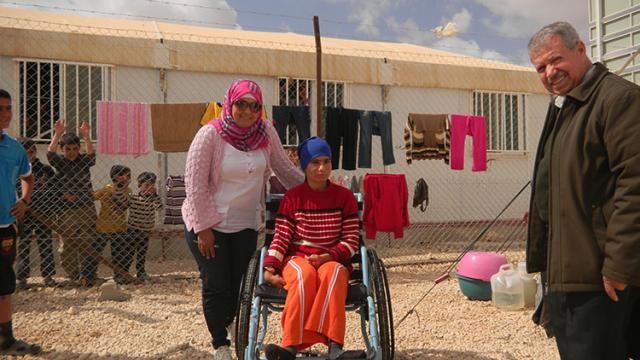
World Humanitarian Day is a time to recognize those who face danger and adversity in order to help others. It is also an opportunity to celebrate the spirit that inspires humanitarian work around the globe. With this in mind we invited Brother Andrew L. Carpentier, Director of The Holy Land Institute for Deaf (HLID), located in Jordan, to share the efforts being done for Syrian refugees. This is the first of a two part series on the work of HLID.
__________________
Prayer for Refugees
By Brother Andrew L. de Carpentier
Dear Lord,
You know what it means to be a refugee. You also lost all and perhaps remembered how you came to be hungry and naked, thirsty and cold, prisoners in a camp or prisoners in our own minds. They even took your cloak and you had nothing left, except some people who came by to quench your thirst, to give you a blanket and to help carry your burden.
Lord Jesus, for God’s sake, let us be those people who bring comfort, food and water, and an encouraging word. And may we then hear the words softly spoken: “insofar as you did it unto these people who are the least of my brothers, you did it unto me. Go in peace!”
__________________
As a result of the Syrian uprising and conflict, an average of 3,000 refugees are entering Jordan each day and many of them are ending up in places like the Zaatari refugee camp outside the main city of Mafraq. The population there is roughly 174,000, making it de facto the 4th largest city in Jordan. This is where The Holy Land Institute for The Deaf (and deaf-blind children,) with support from Episcopal Relief & Development and other European organizations, is working to support the needs of hundreds of children with disabilities.
Even under normal conditions many children with disabilities are excluded from society and lack the support they need to participate and thrive. The stress of having to leave home, school or any special services and settle in a temporary setting, where even the most basic needs are hard to come by, amplifies the struggle and these children become the most vulnerable and marginalized.
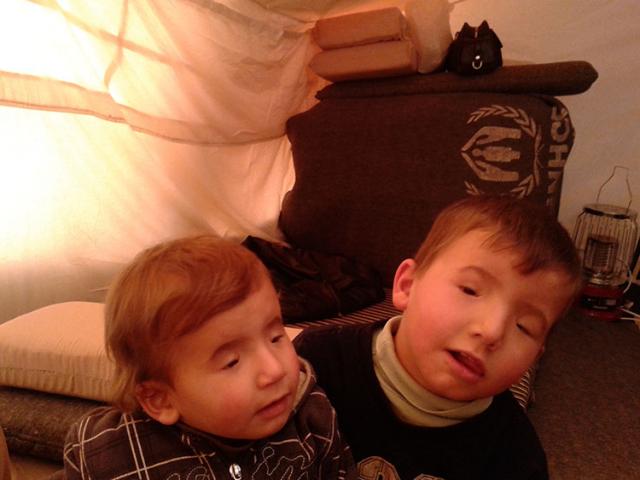
In late 2011, I was watching the news as events in Syria were unfolding, and one story was about the growing influx of refugees. In the background on the dirt path of one of the camps sat a child in a wheelchair, and it struck me that there was something we could do. We inquired about what was being done to address the needs of children with disabilities, and to my surprise nothing had been mobilized yet. Although the office of United Nations High Commissioner for Refugees (UNHCR) has a mandate to provide such services, they often don’t have the staffing and expertise to implement anything immediately. Consequently also earmarked budgets suffer. So we set out to fill this gap.
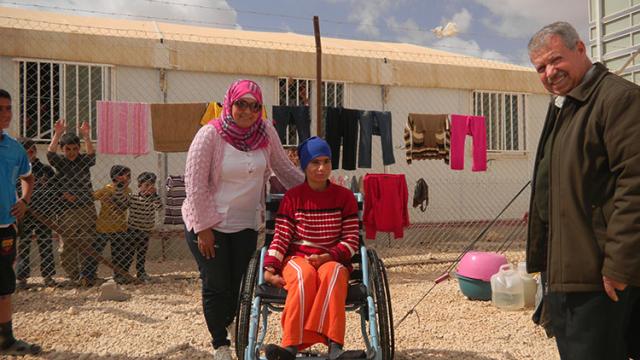
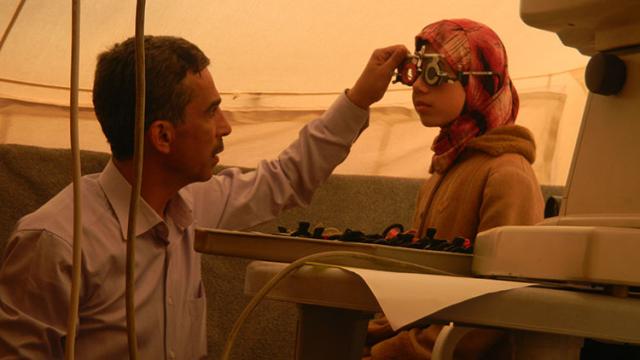
What may seem surprising to some is that our staff is quite acclimated to handling such distressing situations. Many of us gained experience in refugee camps due to other conflicts in the region like the issue of Palestine or the Iraq war. Also, through our regional outreach and training programs, we have working relationships with the community in Syria. As a result, we have some unique capabilities of translating our methodology under these complicated conditions. It’s not easy but the team is very resilient.
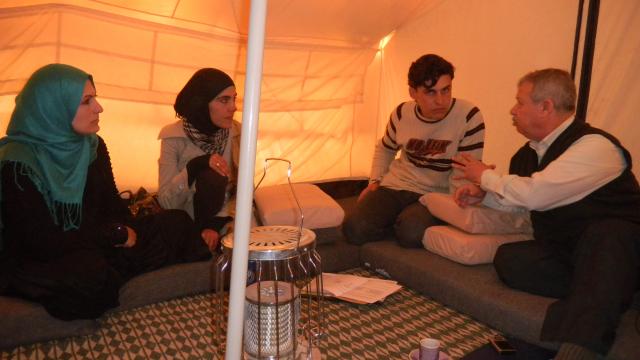
We will continue to offer a helping hand in the Zaatari Camp and to other refugees that are scattered across Jordan. In the short term, our vision is to bring the people we trained previously in Syria to the camps so that they may help meet the growing demand. In the long term, we’d like to see what’s being created taken back to Syria in the form of a permanent school, like the one we have in Jordan, so the work to empower children and youth with disabilities continues.
———-
Brother Andrew L. Carpentier is the Director of The Holy Land Institute for Deaf, located in Jordan. The Holy Land Institute for the Deaf provides education and training for hearing impaired children and deaf-blind children. They also provide hearing aids and support for poorer sectors of society, as well as teacher training for the entire Middle East region.
Photo Credits: HLID


